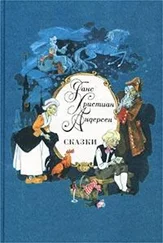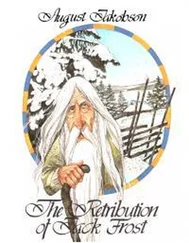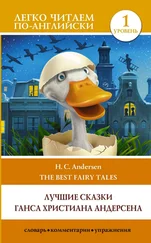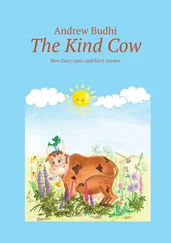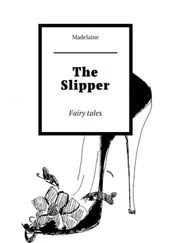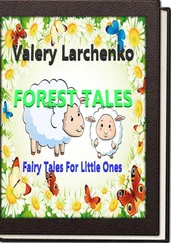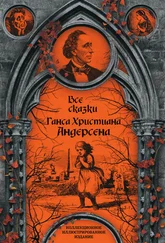Ганс Андерсен - Fairy Tales
Здесь есть возможность читать онлайн «Ганс Андерсен - Fairy Tales» весь текст электронной книги совершенно бесплатно (целиком полную версию без сокращений). В некоторых случаях можно слушать аудио, скачать через торрент в формате fb2 и присутствует краткое содержание. Жанр: Старинная литература, на английском языке. Описание произведения, (предисловие) а так же отзывы посетителей доступны на портале библиотеки ЛибКат.
- Название:Fairy Tales
- Автор:
- Жанр:
- Год:неизвестен
- ISBN:нет данных
- Рейтинг книги:4 / 5. Голосов: 1
-
Избранное:Добавить в избранное
- Отзывы:
-
Ваша оценка:
- 80
- 1
- 2
- 3
- 4
- 5
Fairy Tales: краткое содержание, описание и аннотация
Предлагаем к чтению аннотацию, описание, краткое содержание или предисловие (зависит от того, что написал сам автор книги «Fairy Tales»). Если вы не нашли необходимую информацию о книге — напишите в комментариях, мы постараемся отыскать её.
Fairy Tales — читать онлайн бесплатно полную книгу (весь текст) целиком
Ниже представлен текст книги, разбитый по страницам. Система сохранения места последней прочитанной страницы, позволяет с удобством читать онлайн бесплатно книгу «Fairy Tales», без необходимости каждый раз заново искать на чём Вы остановились. Поставьте закладку, и сможете в любой момент перейти на страницу, на которой закончили чтение.
Интервал:
Закладка:
“The student wrote this,” he said. “The student who lived across the street and died a month ago. They say he suffered a lot from toothaches. It’s quite amusing to read, but there’s only a little of it left now. There was a whole book plus some. My parents gave the student’s landlady half a pound of green soap for it. Here is what I’ve saved of it.”
I borrowed it, and read it, and now I’ll tell it. The title was:
AUNTIE TOOTHACHE
I.
—My aunt gave me candies when I was little. My teeth withstood it and weren’t ruined. Now I’m older and have become a college student, and she still spoils me with sweets. She says that I’m a poet.
I have something of the poet in me, but not enough. Often when I’m walking the city streets, it seems to me like I’m in a big library. The houses are bookcases and each story a shelf with books. There stands an everyday story. There a good old fashioned comedy. There are scientific works about all kinds of subjects. Here smut and good literature. I can fantasize and philosophize about all that literature.
There’s something of the poet in me, but not enough. Many people have just as much of it as I have and yet don’t carry a sign or a collar with poet written on it.
They and I have been given a gift from God, a blessing big enough for oneself, but much too small to be parceled out to others. It comes like a sunbeam and fills your soul and mind. It comes like a waft of flowers, like a melody you know but can’t remember from where.
The other evening I was sitting in my room and felt like reading. I had no magazine or book to leaf through. Suddenly a leaf fell fresh and green from the linden tree, and the breeze blew it in the window to me.
I looked at all the many branching veins. A little bug was moving across them, as if it were making a thorough inspection of the leaf. That made me think of human wisdom. We crawl around on the leaf too and know only that. But then we deliver lectures about the entire big tree, the root, trunk, and crown. The big tree—God, the world, and immortality, and of the whole we only know a little leaf!
Just then Aunt Mille came for a visit.
I showed her the leaf with the bug and told her my thoughts about it, and her eyes lit up.
“You’re a poet!” she said. “Maybe the greatest we have! I will gladly go to my grave if I can live to see that. You’ve always amazed me by your powerful imagination, ever since brewer Rasmussen’s funeral.”
That’s what Aunt Mille said, and she kissed me.
Who was Aunt Mille, and who was brewer Rasmussen?
II.
We children always called mother’s aunt “auntie.” We had no other name for her.
She gave us jam and sugar, even though it was bad for our teeth. She said she had a soft spot for the sweet children. It was cruel to deny them a little of the sweets that they loved so much.
And so we loved Auntie very much too.
She was an old maid, and as far back as I can remember she was always old. Her age never changed.
In earlier years she had suffered a lot from toothaches and was always talking about it. That’s why her friend, brewer Rasmussen, jokingly started calling her Auntie Toothache.
In his last years he no longer did brewing, but lived off the interest of his money. He often visited Auntie and was older than she was. He had no teeth at all, just some black stumps. He told us children that he had eaten too much sugar as a child, and that’s what one looks like from doing that.
Auntie must not have eaten any sugar in her childhood because she had the most beautiful white teeth.
Brewer Rasmussen said that she saved on using them—she didn’t sleep with them at night! We children knew it was mean to say that, but Auntie said he hadn’t meant anything by it.
One morning at breakfast she told us a bad dream she had had that night. One of her teeth had fallen out. “That means I am going to lose a true friend,” she said.
“If it was a false tooth,” the brewer chuckled, “then it only means you’ll lose a false friend.”
“You’re a rude old man!” Auntie said as angrily as I have ever seen her, before or since. Later she said that he had only been teasing her. He was the noblest person on earth, and when he died some day, he would become a little angel of God in heaven.
I thought a lot about that transformation and wondered if I would be able to recognize him in his new form.
When Auntie was young, and he was young too, he had proposed to her. But she deliberated over it too long and didn’t make up her mind. Didn’t make up her mind for too long, and so became an old maid, but she was always a loyal friend to him.
And then brewer Rasmussen died.
He was driven to his grave in the most expensive hearse, and a big procession followed, many people with medals and wearing uniforms.
Auntie stood by the window in her black mourning together with all us children, except for my little brother, whom the stork had brought a week ago.
When the hearse and procession had passed and the street was empty, Auntie wanted to go, but I didn’t want to. I was waiting for the angel, brewer Rasmussen. He had become a little winged child of God and had to appear.
“Auntie,” I said, “Don’t you think he’ll be coming now? Or when the stork brings us another little brother, will he bring angel Rasmussen?”
Auntie was completely overwhelmed by my imagination and said, “That child will become a great poet!” She repeated that all through my school years, after my confirmation, and now into my years as a college student.
She was and is the most sympathetic friend to me, both in my pains with my poetry and pains in my teeth. I have bouts of both.
“Just write down all your thoughts,” she said, ”and put them in the drawer. That’s what jean Paul 1 did, and he became a great poet, although I don’t really like him. He isn’t exciting. You must be exciting! And you will be exciting!”
The night after this conversation I lay awake in longing and distress, with the want and need to become the great poet that Auntie saw and sensed in me. I was in “poet pain,” but there’s a worse pain, and that’s a toothache. It crushed and squashed me. I became a writhing worm with an herbal hot pad on my cheek and Spanish fly.
“I know all about that,” said Auntie. She had a sad smile on her lips, and her teeth shone so white.
I must start a new section of my story and Auntie’s.
III.
I had moved into my new apartment and had lived there a month. I talked with Auntie about it.
“I live with a quiet family. They don’t pay any attention to me, even if I ring three times. Actually it’s a real madhouse with racket and noises of wind and weather and people. I live right over the entrance portal, and every coach that drives in or out makes the pictures on the wall shake. The gate slams and shakes the house as if it were an earthquake. If I’m lying in bed, the jolts go through all my limbs, but that is supposed to be good for the nerves. If the wind’s blowing, and it’s always windy here in this country, then the long casement window hooks dangle back and forth and slam against the brick wall. The neighbor’s portal bell rings with every gust of wind.
The residents of the building come home in batches from late in the evening until far into the night. The lodger right above me, who gives trombone lessons during the day, comes home last, and he doesn’t go to bed until he has had a little midnight walk around his room with heavy tromping in iron-clad boots.
There are no double windows, but there’s a broken pane that the landlady has pasted paper over. The wind blows through the crack anyway and makes a sound like a humming horsefly. It’s music to put you to sleep. When I finally do fall asleep, I’m soon awakened by the crow of the rooster. The rooster and hens announce from the chicken coop of the man in the cellar that it’ll soon be morning. The little ponies, who don’t have a stable, are tethered in the sandpit below the stairs. They kick at the door and the walls for exercise.
Читать дальшеИнтервал:
Закладка:
Похожие книги на «Fairy Tales»
Представляем Вашему вниманию похожие книги на «Fairy Tales» списком для выбора. Мы отобрали схожую по названию и смыслу литературу в надежде предоставить читателям больше вариантов отыскать новые, интересные, ещё непрочитанные произведения.
Обсуждение, отзывы о книге «Fairy Tales» и просто собственные мнения читателей. Оставьте ваши комментарии, напишите, что Вы думаете о произведении, его смысле или главных героях. Укажите что конкретно понравилось, а что нет, и почему Вы так считаете.

![Ганс Андерсен - Ганс Чурбан[другой перевод]](/books/95480/gans-andersen-gans-churban-drugoj-perevod-thumb.webp)
